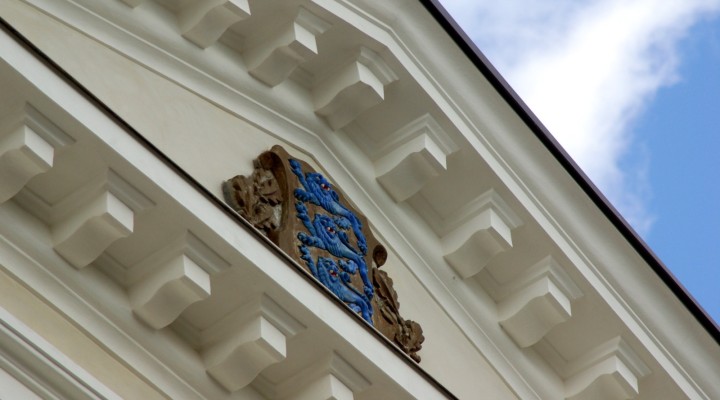Thank you for these kind words. I am very honoured to be here in Washington DC to receive the International Republican Institute’s Jeane J. Kirkpatrick award.
It is an important recognition to me and to Estonia. As Estonia’s first female Prime Minister, this award also means a lot for gender equality. It helps to build the future where one day it doesn’t make headlines that a head of government is a woman (or a man).
I trust that times are changing in this direction, albeit slowly. And I recognize the need for leaders who make it the new normal and lead as an example – so thank you to IRI´s Women’s Democracy Network for your work and leadership!
In addition, this award, and the reasons I was picked as its recipient touch upon several more fundamental aspects – to me and to Estonia. It shows the unity of purpose that we as democracies share.
It also demonstrates, as Jeane Kirkpatrick would have said, that liberal idealism is compatible with the defense of freedom and the national interest.
I have heard some European political scientists label me and other strong supporters of Ukraine as Neo-Idealists. According to them Neo-Idealism is founded on the power of values and everyone, including small states, has a right to self-determination.
I would say that it is actually the same familiar American and European idealism – an idealism to pursue a world where freedom prevails. In fact, it is our common destiny. And such idealism is also realism – it is fundamentally a strategy for survival.
President Ronald Reagan believed that “the Atlantic community is the house of democracy”. And for him, this meant that we must “shelter democracy from all the winds that blow”. He also famously warned that freedom is a fragile thing and it's never more than one generation away from extinction.
I could not agree more. History is by no means a linear progression towards more freedom and openness. The bottom line is that democracies and securing freedoms need constant care and defense. And threats to democratic norms can come from outside, as well as from within.
Our liberal democracies need to deliver not only hope in a better future, but also tangible results for our people. That is why it is important that governments move where the people are – and in many ways the people have moved online.
When Estonia restored its independence and broke free from Soviet occupation in 1991, our country was in a poor state. Thankfully, we had many friends, including the US, on our side. We set out on a long journey of extensive and painful reforms. It was supported by early adoption of state guaranteed electronic identity and digitalisation of government services. That made us a kind of a testbed for digital democracy.
Today, 99% of our government services – starting from paying taxes, to electing the parliament, to registering your new-born’s name – are offered online. Digital transformation has allowed us to achieve much greater transparency and efficiency, and brought citizens closer to government. Also, foreign investors and entrepreneurs have found it very easy to do business in Estonia.
As of today, Estonia is still the only country in the world with iVoting – our citizens can vote over the Internet at home or really anywhere in the world. It’s quick, it’s secure and our citizens trust it – in this year’s parliamentary elections, over half of the voters gave their vote electronically. And in the future, we hope to bring this to mobile devices and introduce mVoting.
I am describing our approach because it illustrates a mindset that I think should form a basis for governance in the 21st century. We should not think of innovation purely in terms of innovative products or breakthrough technologies.
Innovation needs to be put into the service of our own people and democratic governance. Innovation can help to improve the standard of living for everyone while respecting their privacy and rights. Government that is digitally close to its citizens has also allowed us to achieve much greater transparency.
Finally, governments cannot be passive observers of technological progress. We must all be active students. Estonia is not alone in re-imagining government for the digital age – we need to do this together. I hope Team Europe and Team America will work together on how technology can reinforce and support democracy and openness.
Thank you IRI and congratulations on your 40th anniversary!
Thank you, Amazon Web Services, for co-hosting.
I am humbled once again by this recognition – it matters a lot to me personally and to Estonia.
